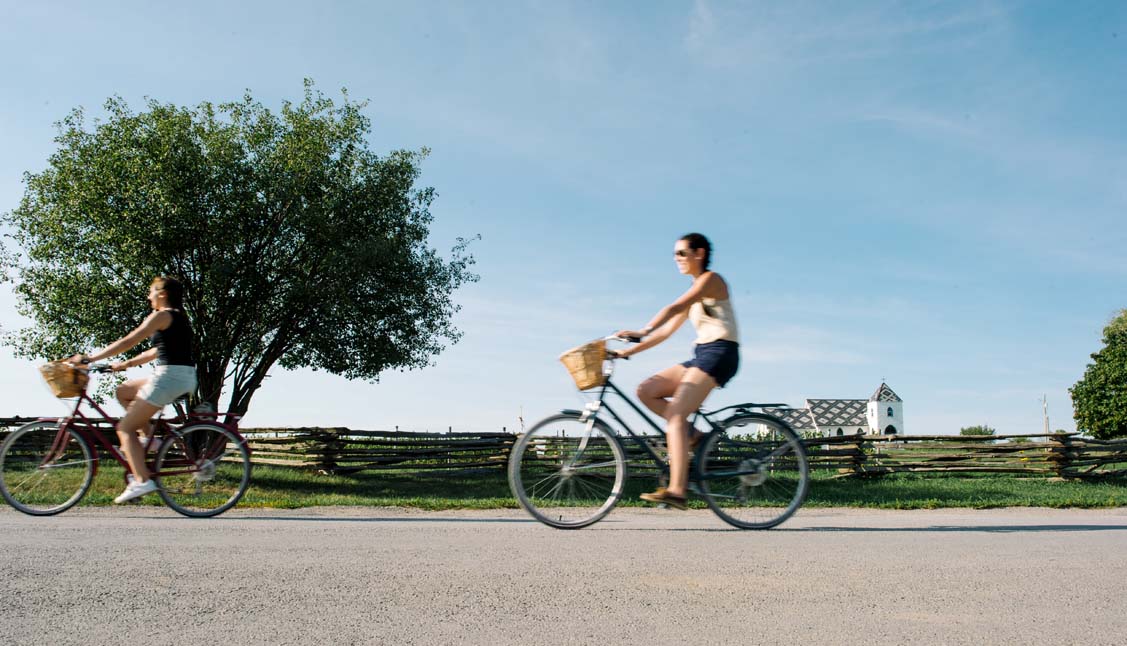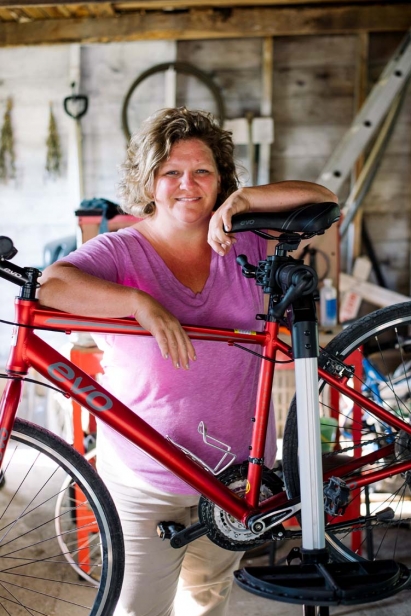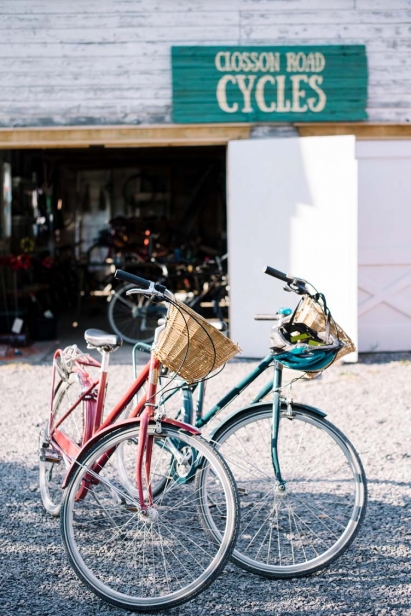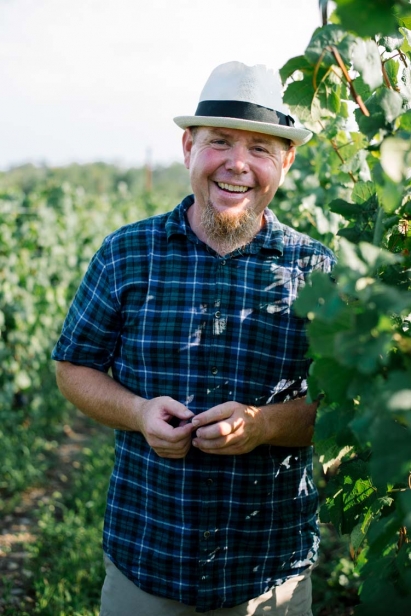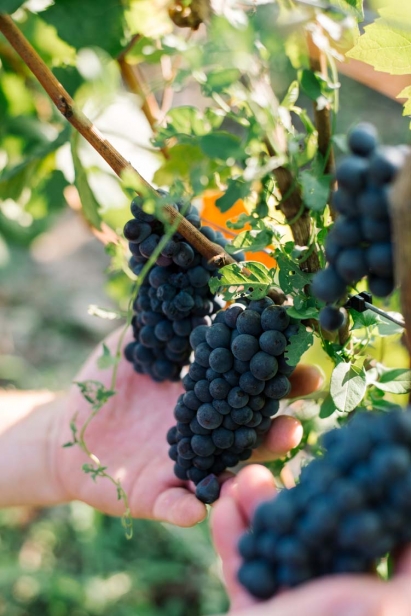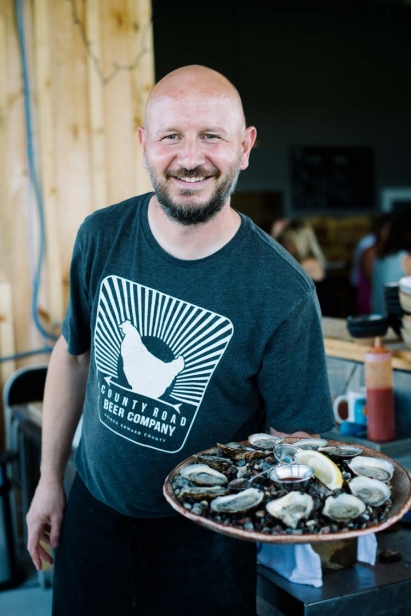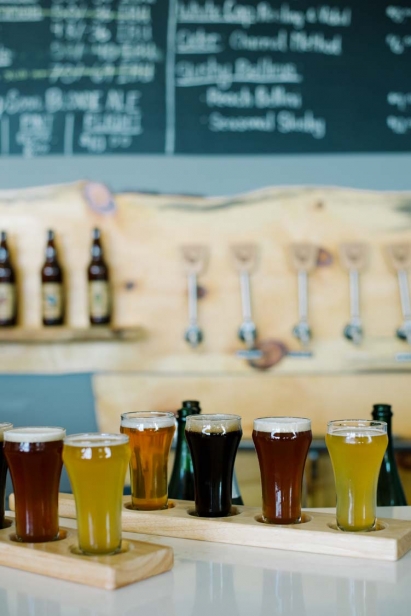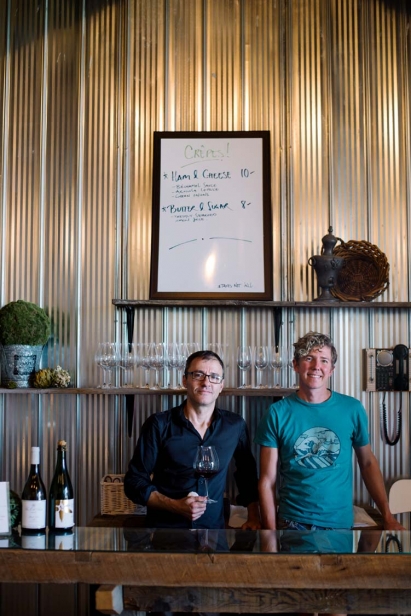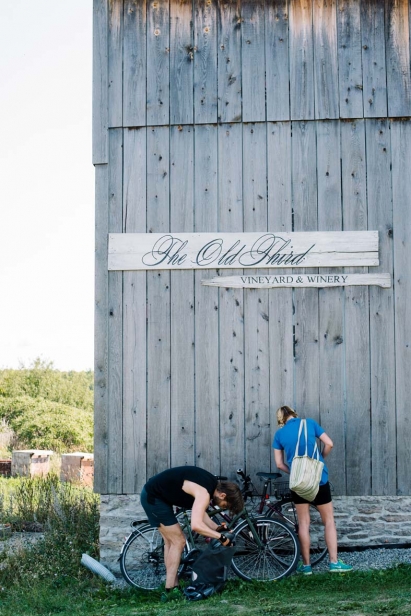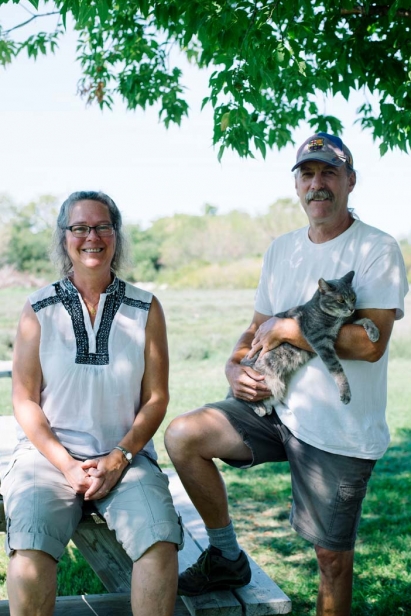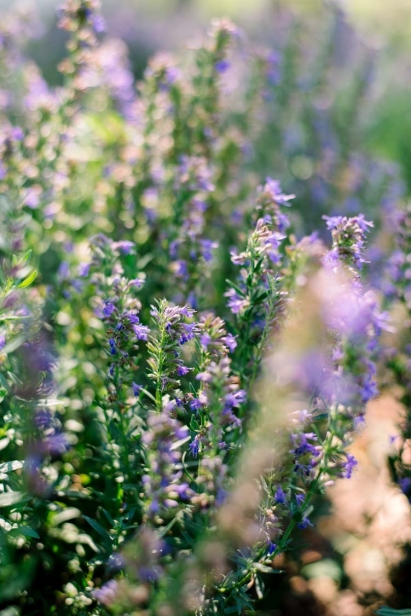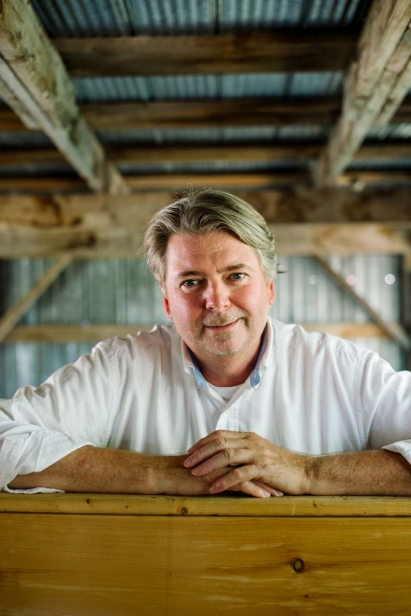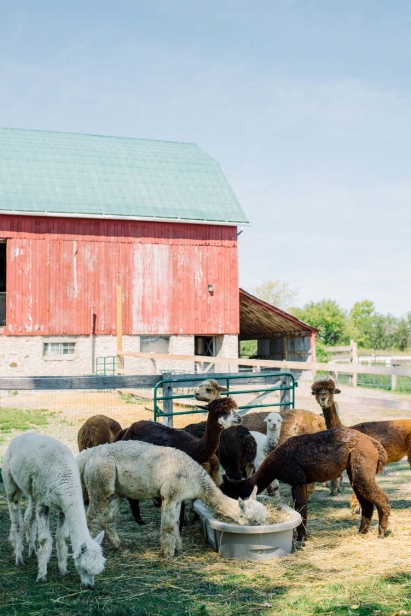A New Spin on Closson Road
On a sun-kissed summer day, it’s not hard to understand why Closson Road is known as the “Golden Mile” in Prince Edward County. This tranquil stretch of country road — located on the far west side of the county — is home to a range of wineries, Bed and Breakfasts and specialized farm shops just begging to be explored. With its easy-going community vibe, Closson Road is less than a three-hour drive from Ottawa, making it the perfect mini-getaway from the city. Ready to trade the blare of rush-hour traffic for the hypnotic hum of insects among the vineyards? Here's a cheat sheet for how to make the most of a weekend in wine country.
Grab a bike
Cassandra and Keith Tyers had a feeling about Closson Road from Day One. “When we came to look at the house, we stepped up on the porch and we felt like we were coming home,” recalls Cassandra. “When we came for the tour of the house, there were only eight rows (of grapes)— four Chardonnay and four Pinot.”
The couple decided to start a family, and a new life, in Prince Edward County. Fourteen years later, Keith is the vigneron and winemaker for a thriving winery called Closson Chase, specializing in Chardonnay and Pinot Noir. The winery’s signature purple barn — a century-old dairy barn renovated to house a tasting bar and processing area — sits across the road from their family home.
Last year, Cassandra launched Closson Road Cycles. Working from her 'office' — a laptop and a picnic table next to the garage — she offers up a range of bike rentals and, just as importantly, sound advice for newcomers. With more than 40 wineries in Prince Edward County, she says it’s important for tourists to have a game plan before putting sneakers to pedals.
“When you open the map, there are a lot of little dots and they’re clustered together,” she says. “But it could be 20 kilometres between wineries and you don’t want to be rushed; you want to enjoy your experience.
“I try to get a sense beforehand of what people want to do, what they want to experience,” says Cassandra, who frequently caters to destination weddings, bachelorette parties and girls’ weekend getaways.
When it comes to gearing up, Closson Road Cycles offers cruising bikes and hybrids. Her most popular models are the Simcoe Step Through Classic and Roadster Classic, both designed in Canada.
“They’re beautiful bikes,” says Cassandra. “They’re comfortable, they have eight gears and that’s all you need — we’re flat.” Many of her rental bikes have baskets — which are perfect for carting a couple of bottles of wine purchased along the way. “If you’re here for some serious buying, I can go and pick them [the bottles] up.”
Customers can also pay for their wine and the winery will hold it for them — seemingly the perfect solution for the wine taster who finds their balance on two wheels getting a little wobbly.
Closson Road Cycles
clossonroadcycles.com, 613.920.2891
Sit and sample
A few easy rotations of the bike pedals bring you across the road to Closson Chase Vineyards, the perfect spot to start a tasting tour.
Sitting in the shade of the beautifully tended gardens behind the purple barn, Winemaker Keith reflects on what makes Prince Edward County such an ideal location for vineyards.
“Geologically, it’s interesting because we have old Calcareous limestone; we have ancient seabed,” he explains of the county. “When they carbon-dated it, it’s older than the stone in Burgundy; the county is just a big limestone plateau that used to be under what was Lake Ontario.”
2016 was an incredibly dry season for Prince Edward County, which had winemakers worried. "We got three inches of rain and we’re still in a Stage 3 drought, Keith says. “I’ve been growing grapes here since 2003 and there hasn’t been a dryer year — not even close; the fruit quality will be phenomenal, but there just won’t be a lot of it.”
Fortunately, the plants can still reach for moisture — thanks to the area’s unique geology. “Here it’s all fractured limestone — there are fissures everywhere,” Keith says. “It’s not like Kingston, which is not good for grapes; here the roots get through it and they can find their own source of nutrients and water.”
He points out that the Bay of Quinte runs from as far west to as far east as the county goes, plus there’s Lake Ontario on the other side. “There’s always water movement; just in years like this it’s not dramatic, says Keith. “The water is the biggest influence — it creates this micro-climate; Lake Ontario plays a huge factor, but personally, I believe it’s the Bay of Quinte that allows us to stay rain-free for such a long time.”
Closson Chase is a single high-density and south-facing vineyard of 30 acres, now specializing in Chardonnay, Pinot Noir and Pinot Gris. Its wines have found widespread success in Canada and beyond. In March 2017, the U.K.-based trade magazine Food and Drink named Closson Chase “Wine Producer of the Year — Prince Edward County and Best Canadian Pinot Noir” for its 2014 Closson Chase Churchside Pinot Noir VQA PEC.
Visitors to the county can also check out the Closson Chase Sunday Night Supper Club — an initiative launched with Chef Steve Wall (Supply and Demand). Each course of the meal is paired with wine, and the event gives participants the chance to learn how wines are made and why they are best paired with certain dishes. This, explains Keith, is really what his work is about — getting people excited about great wine pairings.
“When you have that food-wine synergy, that’s what I design the wine for,” he says. “It’s there to sit on the table and to be enjoyed with food and friends — I want to create a memory.”
Closson Chase Winery
clossonchase.com, 613.399.1418
Linger over lunch
A cold pint of lemongrass and lime-infused beer is a refreshing antidote to a warm, dusty bike ride.
Co-founded by the Hinterland Wine Company, County Road Beer Co. produces premium craft beer. The taproom — open to the fresh air and sunshine in the summertime — just opened its doors in February 2016, and is an ideal snack stop for hungry wine tasters.
The menu features East Coast oysters and a charcuterie plate, including crostini and a pork tenderloin sausage seasoned with fennel and juniper by county-based Empire Meat Co.. Mouthwatering bites are slathered with wine jelly and a local beer mustard (Cressy Mustard) and the chatty staff is more than happy to suggest hot spots to visit in the area.
Hinterland, located on the same property, is worth a stop to sample the delicious sparkling wine.
County Road Beer Co.
countyrdbeer.com, 613.399.5883
Wine and dine
At The Old Third, owners Bruno Francois and Jens Korberg are clearly the purists of Pinot and sparkling apple cider. “Pinot is a tricky grape to grow, so we decided to focus on it,” explains Korberg, who tells us the vineyard is 90 per cent Pinot Noir. “We wanted to have it as our main thing and do it well.”
And they do it well indeed — with demand constantly outpacing supply. “We’ve been selling out every year, which is a good problem to have,” Korberg says, who adds 2016 was their seventh season as a winery. “It creates a nice hype about the product; people are more eager to get it the following year.
“We have a lot of repeat customers; 98 per cent of our sales are from here every year.”
They sell to a handful of restaurants in Toronto, but only those that reach out to the winery.“We don’t have reps or salespeople,” Korberg says. “It’s a different business model, but it works for us.”
The couple left behind an upscale, urban lifestyle in Toronto in 2005; Korberg was an interior designer — his talent shines through in the stylistic details of the winery’s refinished barn, which dates back to 1860 — and Francois had a software company.
“We did nothing related to wine, we just liked drinking it — which is a good start,” Korberg laughs. He explains that the tradition of making apple cider is in his partner’s blood.
“Bruno’s family is from France; his grandfather made cider and Calvados in Normandy,” Korberg says. “So that’s how the cider came about for us; we wanted to keep that family tradition going.”
The duo added Golden Russet Cider to their offerings – a dry cider made with the traditional method, the same way you’d make champagne or a sparkling wine.
“The second fermentation is in the bottle; hand riddled and hand turned; so treated exactly like a sparkling wine, but it’s 100 per cent apple juice,” Korberg says. “It drinks more like a sparkling wine than your typical cider, it’s nice and dry and fresh.”
While many ciders mix up to nine different kinds of apples, the Golden Russet Cider is a single varietal cider — from a single orchard. The apples come from Dunnett Orchards near Brighton, with the cider production demanding the entire crop every year.
“Bruno really wants to show one thing for what it is,” says Korberg. “When we decided to do the cider, he said, ‘I need to find one apple that can do a good cider on its own.’
"He wants to show the terroir that you get in a cider as much as you get in a wine.”
The Old Third Vineyard & Winery
theoldthird.com, 613.471.0471
Smell the lavender
Up the staircase and behind the charming little farmhouse door of the "Jaubert" room — one of three rooms available at Prince Edward County Lavender — the sleeping quarters are plush, cozy and subtly scented with lavender (long known for its calming, sedative effect).
After a blissful night’s sleep, a day on the farm often begins with coffee on the veranda — chatting with the other guests before breakfast. Barbara Wynd, the energetic German cook, treats guests to delicious, homemade fare — such as fruit salad sprinkled with lavender-infused chocolate shavings and biscuits made with lavender sugar.
Rolande Leblanc and Derek Ryles, the owners of the farm, were inspired to start their business in 2005 after visiting lavender farms in New Zealand and France. The couple now farms over three hectares of lavender — as well as about an acre of herbs, including sage, thyme, chives, tarragon, oregano, basil, marjoram, savory, peppermint, spearmint, chamomile, lemon verbena, rosemary and lemon balm.
“Our first products were lavender sachets, soaps and hydrosol — the floral water left after distillation,” Leblanc explains. Over the years, the pair has added more and more products, expanding into essential oils, lotions and creams, and then exploring the culinary applications of lavender.
“We have a Hillier Herb (spice blend) — it’s a mix of tarragon, chives and pink Melissa lavender,” Leblanc says, explaining the blend showcases the terroir of Hillier. “It’s kind of a peppery taste, good with red meat.”
The farm sells a wide range of other lavender edibles — lavender chocolate, lavender sugar, lavender-chamomile tea, lavender nougat and even a lemonade kit that makes purple lemonade — from a retail store on their property and through its online store.
With so many flowering plants on the property, the recent addition of beehives seemed only natural. “We have wildflower honey now, and wildflower honey infused with lavender,” Leblanc says. “Next year, we’re hoping to get the true lavender honey given by the bees.”
When this summer’s crop of lavender is ready for harvesting, the farm will host its sixth lavender festival — scheduled for the weekend of July 8 and 9. Last year’s festival drew more than 5,000 people, so Leblanc and Ryles are expecting a big crowd.
“We’re expanding the size of the venue this year — we’re more than doubling it,” Ryles says, adding that this year’s festival will feature a barrel tasting of lavender wine vinegar.
There will also be more family-style entertainment this year, with a castle maze, a balloonist and face painting for the little ones. Ryles plans to put in a big parking lot and set up lots of picnic tables in the shade.
“We always make sure to have lots of chairs to sit among the lavender when it’s in bloom.”
Prince Edward County Lavender
732 Closson Rd., Hillier, Ont.
peclavender.com, 613.399.1855
Lavender Lemonade
6 cups water
1 1/2 cups sugar
2 teaspoons lavender florets (Hidcote lavender)
2 cups fresh lemon juice
1/4 cup fresh lime juice
1 tablespoon of honey
Bring 1 cup of water to a boil. Remove from heat and use a teaball or infuser to steep the lavender florets in the water, covered, for 30 minutes. Boil 2¹/2 cups of water and dissolve the sugar and honey. Remove from heat. When cool, add 2¹/2 cups of water, the lavender infusion, lemon and lime juice and stir. Serve the lavender lemonade with crushed ice and garnish with lavender blossoms.
6th Annual Lavender Festival
Saturday and Sunday, July 8 and 9 2017
Enjoy this family-friendly event where you can roam the purple fields of lavender, pick your own bouquets, sample lavender nougat, chocolate and, new this year, barrel tasting of lavender wine vinegar.
Meet the alpacas
It’s hard not to smile when you’re looking into the dark, serious eyes of a furry alpaca.
SHED at Chetwyn Farms — a modern-day farm shop specializing in alpaca yarns and products — is a unique must-see on Closson Road.
Housed in a former chicken coop, the shop offers visitors the chance to watch 13 lovably peculiar alpaca graze in the pasture while perusing a range of decadent sweaters, ponchos, throws and accessories handcrafted from their fleece.
SHED’s one-of-a-kind wearables are created by a couple of local designers, tasked with bringing new patterns and product offerings to the farm every year. After the designs are finalized, farm owners Ted Pickering and Shauna Seabrook commission a handful of knitters to make the products.
“We’re very curatorial in what we want to produce,” says Pickering, who has an extensive background in product development and retail. “We might only produce six different hand-knit products in a year, and then we’ll completely shake it up the next year.”
These unique garments are even more astounding when you consider the labour-intensive steps involved to process the fleece. The alpacas are sheared every May — it takes up to 90 minutes per animal.
“When the fleece comes off, it comes off in different grades; the best stuff is bagged for the yarn,” Pickering explains. “The tedious part for us is that each of the grades need to be cleaned and sorted; we do that here.”
The fleece is then batched according to colour using a colour chart; alpacas come in 22 natural shades. “As far as colours, everyone is always looking for the greys and the blacks because they’re harder to get — and those are the primary colours you want to knit with,” Pickering says, who emphasizes that SHED never dyes the yarn. “So we’re always breeding to get the greys and the blacks.”
Alpaca fleece is also hypoallergenic — and very warm. “It’s a hollow fibre so you don’t need as much of it as down or wool to get the heat properties of it,” Pickering says.
Next they send the fleece to mills with instructions, according to the grade. “The alpaca industry in Ontario is very small, so the mills aren’t really set up for alpaca fleece,” Pickering says, who explains that it’s an expensive process. “All the way along, it’s taken us five years to get the product out with confidence at the price it should be.”
Alpaca is a luxury fibre, and that’s reflected in its price. One skein (between 150 to 200 yards) is valued between $20 and $40. Each animal produces between eight and 10 skeins each year — which translates into just one sweater.
“We’re now buying fleece from other farms because we can’t generate enough fleece ourselves,” says Pickering, who has been driving a number of local fibre farms to work together to get fibre out and to build the alpaca industry. “As an industry, it’s not really fully developed, so there’s lots of room for that.”
In the meantime, the alpacas at SHED will continue to enjoy their happy existence.
“In South America, they use them for meat, but that’s just not our style,” Pickering says, adding the animals can live up to 18 years. He says that while many farmers just let alpaca roam, at Chetwyn Farms they have morning and evening routines.
“We actually bring them in at four o’clock, it’s our time with them inside the barn; we feed them and handle them a bit so they get used to people,” he says. “They all have different personalities — Pippa would live in the house if we let her.
“To us, they’re kind of big pets; they’re not so much livestock — that’s just the way it is for us.”
Chetwyn Farms
Closson Rd, Hillier, Ont.
chetwynfarms.com


